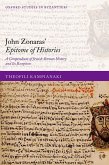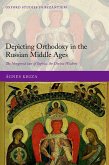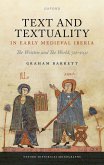The twelfth-century chronicle of John Zonaras, which begins with the biblical Creation and ends in 1118, is one of the longest historical accounts written in Greek that has come down to us. It was also one of the most popular historical works of the Greek-speaking world during the Middle Ages, with a remarkably large number of manuscripts preserving the entire text or parts of it. John Zonaras' Epitome of Histories: A Compendium of Jewish-Roman History and Its Reception analyses Zonaras' chronicle as both a literary composition and a historical account. It concentrates on its composition, sources, and political, ideological, and literary background. It also includes discussions that go beyond the text, such as on the intellectual networks surrounding Zonaras, and the anticipated audience and the reception of the chronicle. By examining such issues, Theofili Kampianaki aims to present Zonaras' chronicle as a product which emerged from a milieu characterized by the increased contacts with Western people and the Komnenian style of rulership in the imperial bureaucracy, and as a work which seamlessly merges the traditions of chronicle writing and classicizing historiography.
Dieser Download kann aus rechtlichen Gründen nur mit Rechnungsadresse in A, B, BG, CY, CZ, D, DK, EW, E, FIN, F, GR, HR, H, IRL, I, LT, L, LR, M, NL, PL, P, R, S, SLO, SK ausgeliefert werden.









